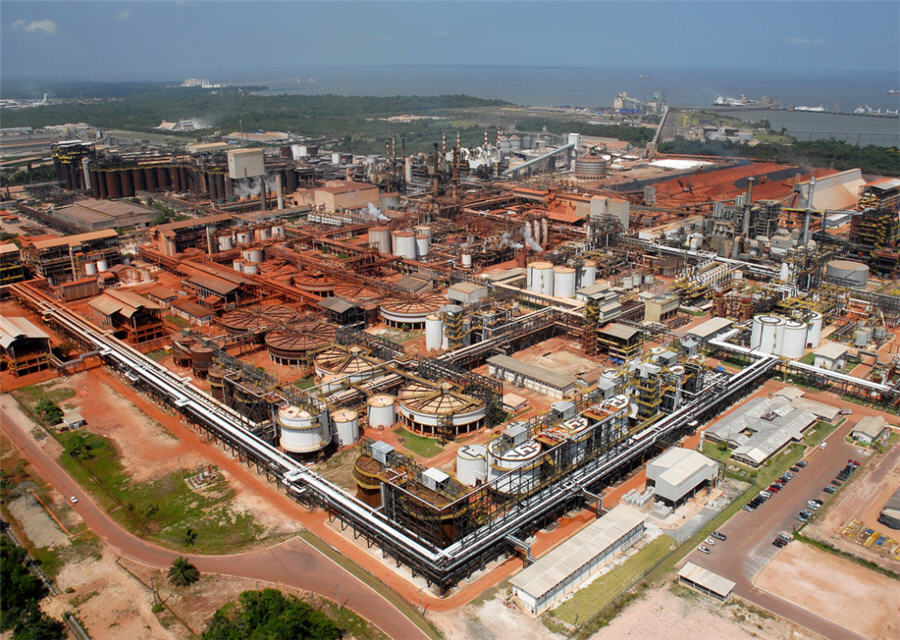Norsk Hydro given nod to restore output at Alunorte alumina plant

Norwegian metals maker Norsk Hydro has been given the go ahead by a Brazilian federal court to resume full output from the company’s Alunorte alumina refinery, it said on Monday.
The plant, a key supplier to the aluminium industry, currently operates at half of its capacity after a spill in February 2018 that prompted regulators and courts to restrict output.
A restart of Alunorte will bring a significant near-term profit boost for Norsk Hydro, the company’s chief executive Hilde Merete Aasheim said this month.
Alunorte has annual production capacity of 6.3 million tonnes of aluminium oxide, or alumina, while global output of the white, powdery substance is close to 100 million tonnes a year
The refinery is the world’s largest, transforming bauxite from mines in Brazil into alumina, the key material used for making aluminium at smelters owned by Hydro and others around the world.
“Production at Hydro’s Paragominas bauxite mine will be increased in line with the ramp-up speed at Alunorte. A decision to also increase production at Hydro’s part-owned Albras primary aluminium plant is expected shortly,” Hydro said on Monday.
The Albras smelter, owned 51 percent by Hydro and 49 percent by Nippon Amazon Aluminium, has annual capacity of 460,000 tonnes of finished metal but has operated at half capacity because of reduced raw material supply.
The federal court’s decision to lift the Alunorte embargo followed a hearing last month.
The plant could reach 75-85% utilisation within two months, with a further increase after that, the company added.
Since the emission of untreated water during severe rains in February last year, Hydro has upgraded Alunorte’s facilities to help to convince authorities to allow it to resume full output.
A technical assessment by a third-party consultancy last month backed the conclusion that the plant was safe, leading Hydro and the prosecutor to propose on April 12 that the court should lift its embargo.
Alunorte has annual production capacity of 6.3 million tonnes of aluminium oxide, or alumina, while global output of the white, powdery substance is close to 100 million tonnes a year, Norsk Hydro says on its website.
In addition to the output restriction, Hydro is still awaiting a court ruling on whether it will be allowed to use a new bauxite residue disposal area, known as DRS2.
In the meantime, the company’s existing DRS1 waste facility is filling up and has an estimated remaining lifetime of 8-18 months, though the company is working on plans to extend that, Hydro said last week.
Trade in Hydro’s shares closed before Monday’s announcement. The stock has fallen by 15% so far this year.
(By Terje Solsvik; Editing by David Evans and David Goodman)
{{ commodity.name }}
{{ post.title }}
{{ post.date }}




Comments